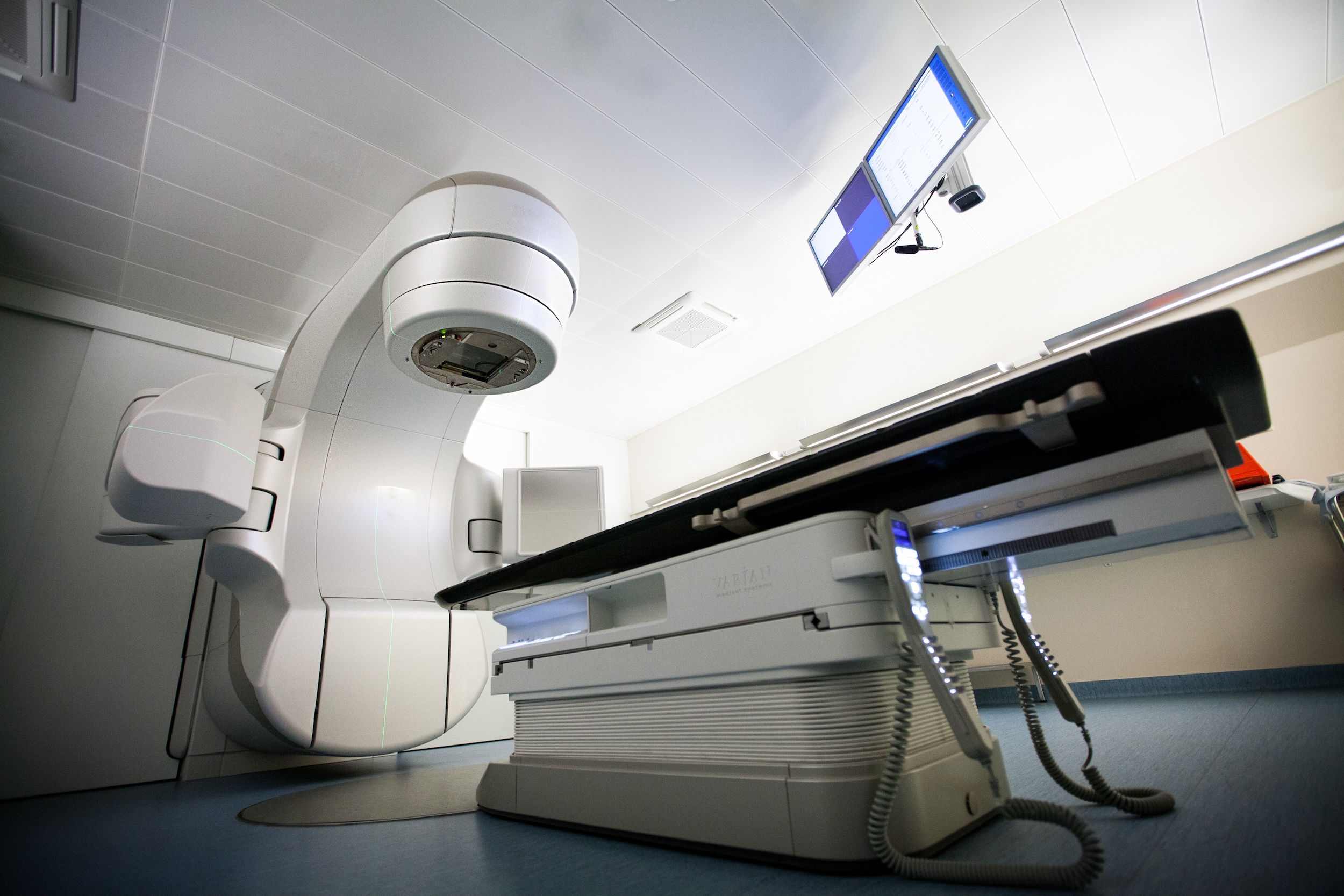
New Brunswick, N.J., June 24, 2024 – As the most common cancer (after skin cancer) and second leading cancer cause of death in American men, prostate cancer is among the largest health concerns for men today. Radiation therapy is a highly effective and minimally invasive treatment option for many men with prostate cancer, offering low side effect risks.
Ronald D. Ennis, MD, Professor and Vice Chair of Network Integration and Quality at Rutgers Cancer Institute and Associate System Director for Radiation Oncology Services, RWJBarnabas Health, and Alison Grann, MD, director of Network Integration and Quality for Radiation Oncology, Northern Region, RWJBarnabas Health and chair of the Department of Radiation Oncology at Cooperman Barnabas Medical Center, share what men should know about radiation therapy for prostate cancer.
What are the different types of radiation therapy offered for prostate cancer?
- Intensity-Modulated Radiation Therapy (IMRT): This technique uses advanced technology to manipulate photon and proton beams to conform precisely to the shape of the tumor. This precision helps minimize damage to surrounding healthy tissues.
- Cyberknife (SBRT): This is a form of stereotactic body radiation therapy that delivers highly targeted radiation in fewer sessions compared to traditional methods.
- Proton Therapy: Unlike x-rays, proton therapy uses proton beams that deliver radiation with even greater precision. This method potentially reduces side effects by limiting radiation exposure to surrounding tissues.
- High Dose-Rate (HDR) Brachytherapy: In this method, radiation is temporarily placed inside the prostate for 1-2 treatments and then removed. It allows for a high dose of radiation to be delivered directly to the prostate in a controlled manner.
- Low Dose-Rate (LDR) Brachytherapy (Seeds): Small radioactive seeds are implanted in the prostate, releasing radiation over several weeks to months. This method, like HDR brachytherapy, allows for a high dose of radiation to be delivered directly to the prostate in a controlled manner but provides this as a continuous low dose of radiation over weeks-months.
- Radiopharmaceuticals: A newer class of drugs which deliver radiation therapy directly and specifically to cancer cells. Radiopharmaceuticals are injected intravenously and travel through the blood to reach cancer cells that have spread to other parts of the body.
Who is the Best Candidate for this treatment and and which type of radiation is best?
While many men diagnosed with prostate cancer may undergo surgery most men with few exceptions are ideal candidates for radiation therapy; Each patient should carefully consider radiation therapy in consultation with their medical team to determine the best approach. Factors such as the specific characteristics of the cancer, the patient's overall health, and personal preferences all play a crucial role in this decision.
What are the benefits of radiation therapy for prostate cancer?
- Radiation therapy effectively targets cancer cells.
- This treatment approach reduces the risk of impotence and incontinence, common side effects associated with other treatments.
- Patients can avoid major surgical procedures, making the treatment less invasive and often more appealing.
The Approach at Rutgers Cancer Institute and RWJBarnabas Health
At Rutgers Cancer Institute and RWJBarnabas Health, our approach is tailored to each individual based on their specific cancer characteristics, overall health, and personal preferences. This personalized care ensures that each patient receives the most appropriate and effective treatment for their condition.
When men have the information and resources they need, they may feel more empowered to take control of their health. Learn more about the Prostate Oncology Program and latest prostate cancer treatments available at New Jersey’s only National Cancer Institute (NCI)-Designated Comprehensive Cancer Center: rwjbh.org/beatcancer.
For journalists – contact:
Krista Didzbalis
Corporate Communications Specialist
732-507-8307
krista.didbalis2@rwjbh.org

